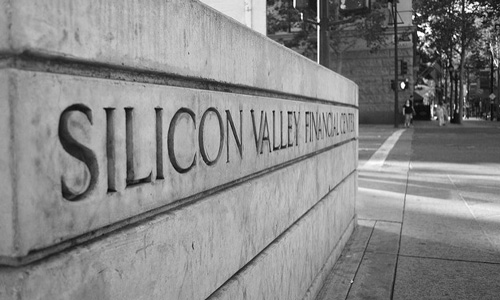As tech companies continue to abandon the sky-high costs of the San Francisco area, communities across the country are wondering what it takes to become the next tech hub. This blog outlines five elements that are key to attracting startups and innovative industries. Journalists can investigate these areas when reporting on their region’s potential to become the next Silicon Valley.
Cost of housing and quality of life
One of the most frequently cited reasons for the tech industry’s migration from San Francisco is the desire for a higher quality of life and lower living expenses. Bloomberg reported that housing prices in the fastest growing tech hubs are half of that of San Francisco, where the median home value is $1.1 million. Based on data from Zillow.com, median prices are $585,400 in Seattle, $582,100 in Los Angeles, $378,600 in Portland and $192,900 in Phoenix,
Meanwhile, weather and overall quality of life also attract tech firms. Red-hot tech hubs such as Los Angeles, Seattle and San Diego are known for their enviable environment and weather, which not only draw IT experts for quality of life but also encourage greater productivity.
Reporter’s Tool
• WalletHub has a full report that compares the quality of life in all 50 states and the District of Columbia, which can be a useful tool to evaluate the life satisfaction index in your region.
Healthy infrastructure
A well-maintained infrastructure plays a crucial role in attracting businesses. In addition to good schools and room for firms to set up shop, tech companies have specific needs. Easy access to energy grids ensures the smooth running of communication systems and improved connectivity in and out the region. Well-established transportation system offers tech workers an easy commute.
Utah’s so-called Silicon Slopes area illustrates how well-planned infrastructure benefits the region. Salt Lake City sits along the major east-west Internet corridor, where 10 key service providers deliver high-speed services, described as the “internet backbone” of Utah’s high-tech industry success. (One reason the NSA’s largest data center sits in the Utah desert.) In addition to its Internet grids, Salt Lake City was reported as being the best city for commuters in Forbes, 2010. Its airport ranked #1 in U.S.A. Today’s report, Country’s Speediest Major Airport, in June 2013.
Reporter’s Tool
• Check infrastructurereportcard.com to see the how your state’s infrastructure stacks up.
Low taxes
It goes without saying that low taxes are major incentives for any business, including tech corporations. Low corporate taxes in Utah are one of major reasons for its 85 percent increase in tech-job postings in 2015, according to the Dice analysis from the U.S. Bureau of Labor Statistics.
Take a look at emerging tech hubs such as Miami. Florida’s 5.5 percent corporate tax is one of the nation’s lowest; there are no local or state incomes taxes; and Miami has no local corporate tax. The city has become home to 139 startups and companies on the Inc.5000 list as well as giant tech players including Google, Twitter, Facebook, Uber, Lyft and Vice, reported techcrunch.com in January.
Reporter’s Tool
• Find specific information about your state’s corporate taxes at the Tax Foundation.
VC community
A strong VC presence paves the way for tech start-ups to take root. VC funding provides tech companies the freedom to hire talented workers and the financial support for technology innovation. Forbes reports that personal finance site Nerdwallet uses venture capital funding figures as a key element in ranking the most innovative tech hubs.
It is not surprising that the San Francisco-Oakland-Fremont area, the king of tech hubs, tops the list for VC investment, according to a report from the National Venture Capital Association.
Reporter’s Tool
• Check VC investment in your region from the CityLab survey on venture capital investment and startup activity across U.S. metros.
A young and educated population
Not only are young people the target customers of many mobile and consumer-based applications, they also provide a strong tech workforce. An MB Financial Bank survey of nearly 4,000 IT executives from more than 50 countries reveals that their major concern is a chronic shortage of workers with key tech skills. If your town has a young, well-educated population, it may have the potential to attract businesses including software innovation, cloud-based solutions, e-commerce, B-to-B platforms and online marketplaces.
In Austin, arguably the country’s most attractive tech hub, the median age is 31.8. Chicago’s wealth of universities and incubators produces well-educated workers and draws a large number of companies seeking candidates with appropriate skill sets.
Reporter’s Tool
• Use American Fact Finder to find the median age of your community.
• Univsearch.com is a helpful website to check the number of universities in your area and the programs they offer.











